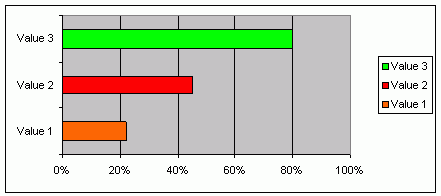PCB Trace Width Calculator January 31, 2006
This Javascript web calculator calculates the trace width for printed circuit boards based on a curve fit to IPC-2221 (formerly IPC-D-275). Also see the via calculator.
New features:
- Results update as you type
- Several choices of units
- Units and other settings are saved between sessions
- Blog format allows user comments
Inputs:
| Current | Amps | |
| Thickness |
Optional Inputs:
| Temperature Rise | Deg | |
| Ambient Temperature | Deg | |
| Trace Length |
Results for Internal Layers:
| Required Trace Width | ||
| Resistance | Ohms | |
| Voltage Drop | Volts | |
| Power Loss | Watts |
Results for External Layers in Air:
| Required Trace Width | ||
| Resistance | Ohms | |
| Voltage Drop | Volts | |
| Power Loss | Watts |
Notes:
The trace width is calculated as follows:
First, the Area is calculated:
Area[mils^2] = (Current[Amps]/(k*(Temp_Rise[deg. C])^b))^(1/c)
Then, the Width is calculated:
Width[mils] = Area[mils^2]/(Thickness[oz]*1.378[mils/oz])
For IPC-2221 internal layers: k = 0.024, b = 0.44, c = 0.725
For IPC-2221 external layers: k = 0.048, b = 0.44, c = 0.725
where k, b, and c are constants resulting from curve fitting to the IPC-2221 curves
For geometry diagrams, click on the pictures below.


For frequently asked questions, see the comments.
PCB Trace Resistance Calculator January 24, 2006
This online web calculator finds the resistance of copper PCB traces (a.k.a. tracks) of given width, thickness, length, and temperature. It can also be used for copper bars (e.g. bus bars). Several choices of common units are available. Enter the Width and Thickness below. Optionally, enter the Temperature and Length, or just leave the default values. (To find the needed trace width based on current, see the PCB Trace Width Calculator.)
May 17, 2006 - Added (lateral) thermal resistance calculations.
January 18, 2007 - Clarified equations.
The Calculator
(more...)
Best Free Circuit Simulator January 21, 2006
I have been using LTspice (a.k.a. SwitcherCAD III) for about 3 years as my main circuit simulation tool and have been very happy with it. Linear Technology has generously made it available free on their web site, and it is full-featured, fast, and seems to converge very well. I’ll be posting some of my simulation tips and tricks, so I highly recommend that you download it and get familiar with it. They also have a great user’s group to help get you going.
Find Standard Resistor and Capacitor Values
This javascript calculator finds the closest standard resistor (or capacitor) value in each of the IEA series. Use this, and get rid of that tattered old standard decade resistance table taped to your cubicle and put a nice photo there instead!
| Desired Value: |
| IEA Series | Closest Value | Error |
| E6 | ||
| E12 | ||
| E24 | ||
| E48 | ||
| E96 | ||
| E192 |
Which IEA series applies to the various component types?
- E6: most capacitors, some inductors
- E12: some capacitors, 10% resistors
- E24: 5% resistors
- E48: 2% resistors
- E96: 1% resistors
- E192: 0.5%, 0.25%, 0.1% resistors
Health Calculator
This post includes an online calculator that calculates how many calories you burn per day and your Body Mass Index (BMI).
Calories/Day
Your Basal Metabolic Rate (BMR) is the calories needed for basic body function without any activity. Total Daily Energy Expenditure (TDEE) your BMR plus calories burned from activities. These can be helpful in planning food intake, diet, etc.
Body Mass Index (BMI)
The National Heart, Lung, and Blood Institute suggests the following:
- A BMI below 18.5 means you are underweight.
- A BMI of 18.5 to 24.9 is normal.
- A BMI of 25 to 29.9 is overweight.
- A BMI of over 30 indicates obesity.
The Calculator
(more...)
Dynamic Excel Chart Colors January 17, 2006
Did you ever want to have the colors of an Excel bar chart change dynamically with the values of the chart? The code below gives results like those shown below.

Just place this code (more…)